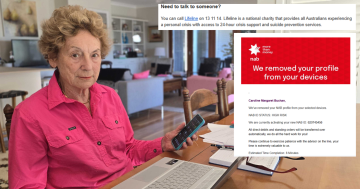 The Commissioner for Consumer Protection has reported that the image and identity of Attorney-General, John Quigley has been used as part of a beneficiary scam that also involved setting up a fake website.
The Commissioner for Consumer Protection has reported that the image and identity of Attorney-General, John Quigley has been used as part of a beneficiary scam that also involved setting up a fake website.
Lanie Chopping said two reports had been received from people who received emails purporting to be from Mr Quigley as the lawyer for a deceased person who had left $US4.3 million ($A5.6 million) in a bank account and no will.
“The email is phishing for personal information from the recipient,” Ms Chopping said.
“Also included is a link to a fake website ‘JR’Quigley LEGAL’ which features Mr Quigley’s name and image and the address of Ministerial offices at Dumas House in West Perth. WA ScamNet has acted quickly to have the site shut down.”
Ms Chopping said it was common for scammers to steal the identity of prominent people and celebrities to fool their targets into believing their fake proposal was legitimate.
“In this instance, WA ScamNet has identified that the website is a copy of a NSW-based law firm’s with only a few amendments made to the real website,” Ms Chopping said.
“Beneficiary scams are fairly common and the scammer normally masquerades as a lawyer, so in this case they wanted to add some authenticity to the con by stealing the identity of a prominent lawyer, WA’s Attorney-General.”
She said that when people responded, what usually followed were requests for personal information, such as copies of passport and driver’s licence, and continual requests for payment for legal fees or taxes in order to be able to access the funds.
“Scammers will go to great lengths to convince their victims that a fortune awaits if instructions are followed,” Ms Chopping said.
“They may even send a large number of seemingly legitimate legal documents to sign, such as power of attorney documents.”
“A second or even third scammer may be introduced, posing as a banker, lawyer or tax agent, to ‘help facilitate the legal and financial aspects of the transaction’.”
The Commissioner said that even if payments were made, the recipient would not receive the sum of ‘inheritance’ money promised, and they would not get their money back.
“They might also leave themselves open to identity theft,” she said.








